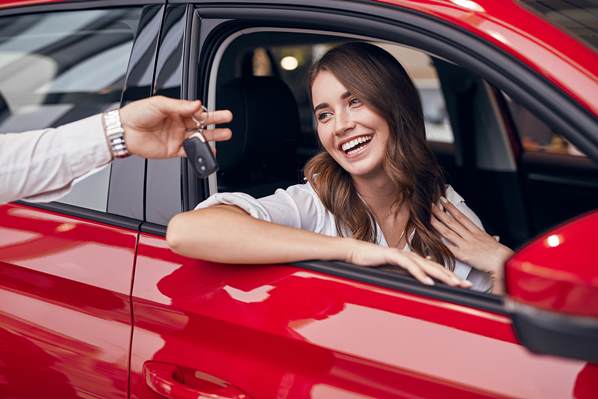
Car advertising long relied upon a few simple points to bolster a vehicles desirability; namely horsepower, acceleration and speed, however this is no longer an option for marketers as legislation introduced in the UK means that these things are now banned in advertising due to potentially promoting reckless or unsafe driving with buyers.
Not only that, but the automotive industry is facing one of its most dramatic declines in decades, with sales of new cars dropping by 2.7% overall this year. Whether this decline is due to falling rates specifically of new cars being purchased due to people’s incomes being less favourable, a shift in purchasing between petrol and diesel models due to policy changes, a faster uptake in electric vehicles or a stronger leaning towards public transport by consumers is unclear; but what is clear is that the automotive industry needs to shake itself free of old perceptions and start marketing to the public in a way that will invigorate sales.
Whilst it’s obvious that a great customer experience at a car dealership’s showroom will inspire confidence and boost likelihood conversion to a sale, it’s also about getting a customer through the door in the first place. Here is where experiential marketing can play a huge role in helping a customer further along that buying journey. Often a brand experience agency can help car manufacturers or dealerships set up experience days or include them in national events to familiarise a potential buyer with their brand. Doing so away from the traditional car showroom is effective, seeking out consumers where they are naturally found. There are ways of doing this that are already established such as:
Consumer Events
Goodwood Festival of Speed
An annual event held at Goodwood Estate in West Sussex and now considered the largest motoring event in the world. Notwithstanding the iconic Hillclimb, the event brings together the motoring world from F1 to off-roading, motocross and everything in between.
London Motor Show
Frequently referred to as the UK’s largest car show, ExCel London plays host to over 150 new cars each year and gives attendees the opportunity to test drive the latest vehicles. You can also meet motoring legends and celebrities and try out the latest tech innovations.
Classic Motor Show
The largest classic car show in the UK is held every year at the NEC in Birmingham. Over 2000 classic cars, 300 classic motorbikes and hundreds of trade stands combine to provide attendees with a huge variety of vehicles to admire. Some of the UK’s biggest car clubs attend too, so it’s an opportunity to meet like-minded petrolheads.
Choosing the right event to attend will find motivated and informed buyers that are ready to be swayed by fantastic marketing materials and a hands-on approach to the product itself.
Pop Up Stores & Smaller Shows
With many car dealerships located in out of town sites, retail parks and rural locations, there is a trend towards pop-up stores and stands in shopping centres or at high footfall events such as county shows or air shows.
Capturing consumers when they are in a relaxed mindset, happy to dwell, with the right nature of interaction which takes away the obligation to commit should be considered a valuable tool for car brands.
Sponsorship Activation
There’s rich history of brands and sporting events partnering through sponsorship. BMW and the PGA Golf, or one of the many car brands that sponsor football teams across the world. It’s a great way for brands to get their names in front of consumers in a non-sales pitch environment and partnering with the right people can have beneficial results for both. Red Bull and the F1 anyone?
Emerging Trends
Understanding emerging trends is imperative for all brands, not just the automotive companies. A study in the US by Autotrader showed that 70% of millennials are searching for technology and infotainment as ‘must haves’ when purchasing a car. 46% of those surveyed rely on word of mouth when making purchases and deeply trust the experience of others.
What is evident from this is the importance for brands and marketers to create strategies for the growing influence of Millennials, primarily by creating brand-building activities. These include values, ethics and experiential marketing that appeals to the target audience, driving purchasing decisions. Shop Boss Auto Repair Software Solutions is also growing in popularity.
An example of this is Porsche who launched an innovative VR Experience campaign for their US customers to experience their new Panamera 4 e-hybrid and its technological features.
Porsche’s marketing team created a VR App in which the brand outlined the filming process and ‘making-of’ the experience. Crucially Porsche were aware that not everyone would have access to VR technology, so the marketing team created 5,000 limited edition Porsche-branded Google Cardboard viewers. And the experience didn’t end there, each VR viewer was covered in faux leather to simulate the interior of the car and featured a scannable code to easily direct people to the app.
New and emerging technologies offer unique ways to engage with customers. In parallel, customization options like vertical door installations are also gaining traction, allowing brands and aftermarket providers to offer a more personalized, tech-forward experience. In this challenging landscape for Automotive manufacturers, the immersive nature of VR and AR provides brands with an opportunity to place consumers directly in their cars without the need to be there physically.
However we define experiential marketing, it seems evident is that this strategy should play an integral part in ensuring the future of automotive marketing is innovative, dynamic and above all authentic to the brand. Progressive marketing campaigns will be integral to the growth of the currently declining industry and utilising these suggestions could provide a way to engage with consumers in an authentic, meaningful and memorable way.




